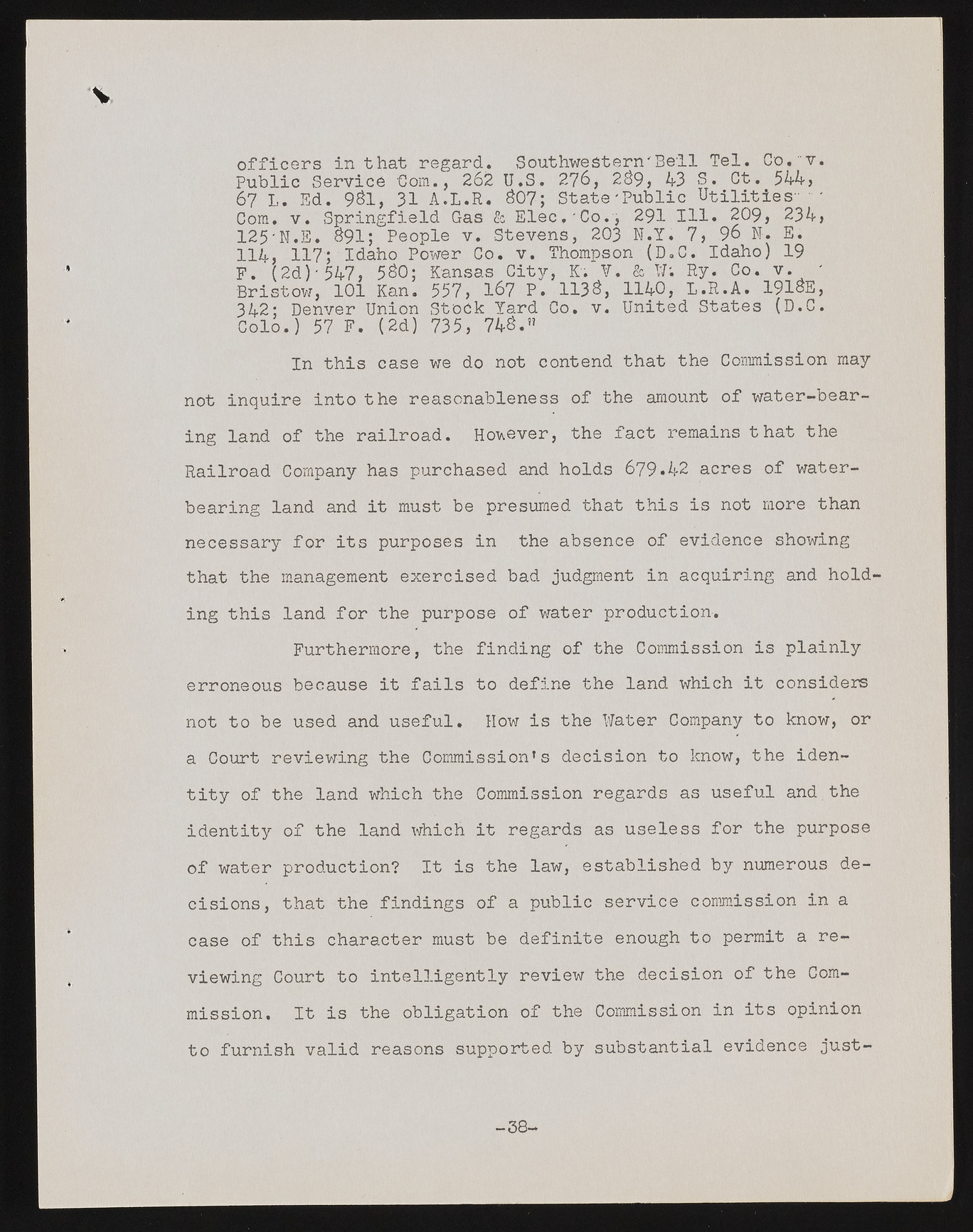Copyright & Fair-use Agreement
UNLV Special Collections provides copies of materials to facilitate private study, scholarship, or research. Material not in the public domain may be used according to fair use of copyrighted materials as defined by copyright law. Please cite us.
Please note that UNLV may not own the copyright to these materials and cannot provide permission to publish or distribute materials when UNLV is not the copyright holder. The user is solely responsible for determining the copyright status of materials and obtaining permission to use material from the copyright holder and for determining whether any permissions relating to any other rights are necessary for the intended use, and for obtaining all required permissions beyond that allowed by fair use.
Read more about our reproduction and use policy.
I agree.Information
Digital ID
Permalink
Details
Member of
More Info
Rights
Digital Provenance
Publisher
Transcription
V officers in that regard. Southwestern'Bell Tel. Co.'V. Public Service Com., 262 U.S. 276, 289, 43 S. Ct. 544, 67 L. Ed. 981, 31 A.L.R. 807; State'Public Utilities.. Com. v. Springfield Gas & Elec,"Co., 291 111. 209, 234, 125'N.E. 891; People v. Stevens, 203 N.Y. 7, 96 N. E. 114, 117; Idaho Power Co. v. Thompson (D.C. Idaho) 19 F. (2d)'547, 580; Kansas City, K. ¥. & W; Ry. Co. v. j Bristow, 101 Kan. 557, 167 P. 1138, 1140, L.R.A. 1918E, 342; Denver Union Stock Yard Co. v. United States (D.C. Colo.) 57 F. (2d) 735, 748.” In this case we do not contend that the Commission may not inquire into the reasonableness of the amount of water-bearing land of the railroad. However, the fact remains that the Railroad Company has purchased and holds 679*42 acres of waterbearing land and it must be presumed that this is not more than necessary for its purposes in the absence of evidence showring that the management exercised bad judgment in acquiring and holding this land for the purpose of water production. Furthermore, the finding of the Commission is plainly erroneous because it fails to define the land which it considers not to be used and useful. How; is the Water Company to know, or a Court reviewring the Commission’s decision to know, the identity of the land which the Commission regards as useful and the identity of the land which it regards as useless for the purpose of water production? It is the law, established by numerous decisions, that the findings of a public service commission in a case of this character must be definite enough to permit a reviewing Court to intelligently review the decision of the Commission. It is the obligation of the Commission in its opinion to furnish valid reasons supported by substantial evidence just- 38-

